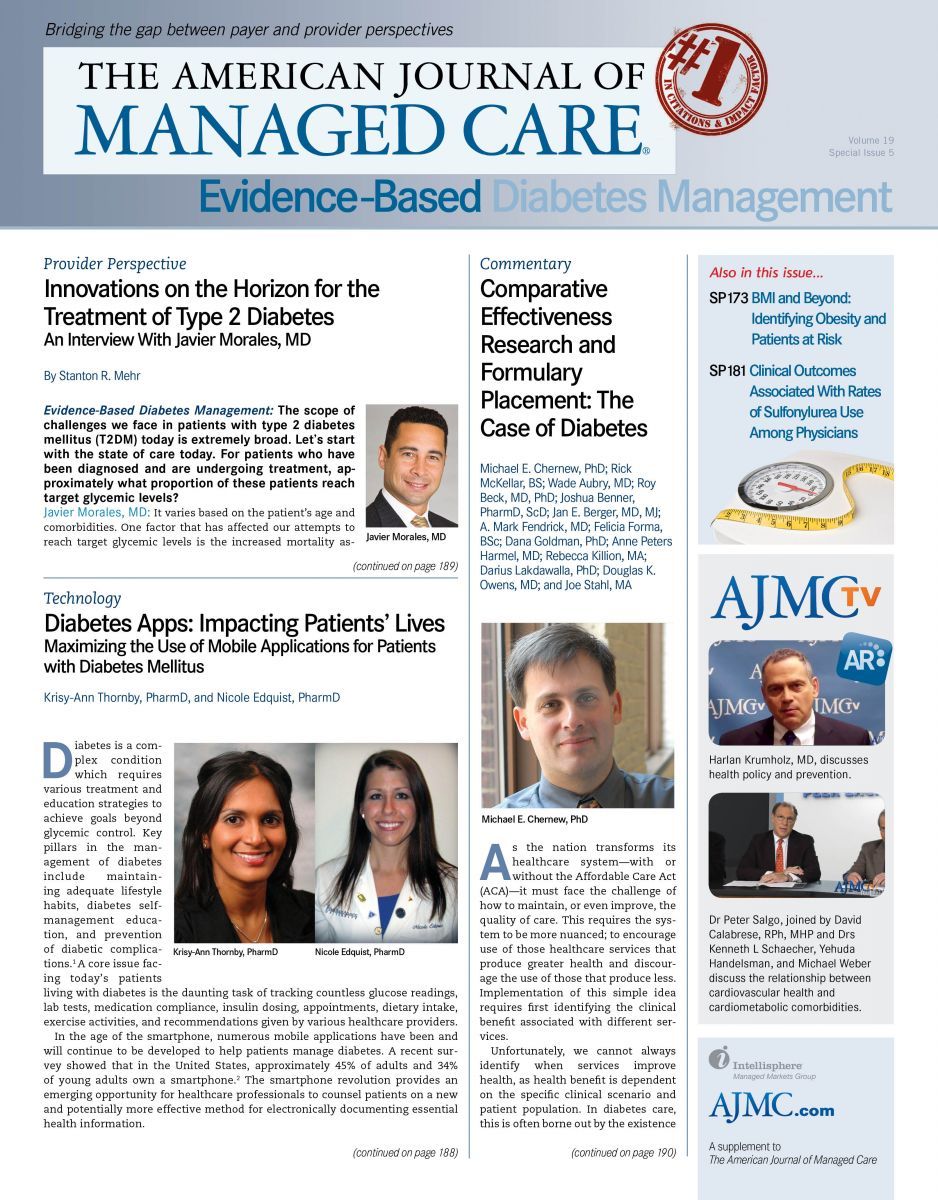- Center on Health Equity & Access
- Clinical
- Health Care Cost
- Health Care Delivery
- Insurance
- Policy
- Technology
- Value-Based Care
Gaming the System for Better Adherence
Medication nonadherence, including persistence with medical regimens, continues to vex the healthcare system. According to health policy experts, medication nonadherence not only drains the healthcare system of resources, but seriously hinders the effectiveness of important treatment innovations. A new approach to nonadherence management, however, could change this frustrating picture.
“Medicine doesn’t matter, until it enters the body,” stated Yelena Yankovskaya, PharmD. Yankovskaya, a fellow in managed markets at the Mayes College of Healthcare Business and Policy, University of the Sciences, Philadelphia, points out that the careful, time-consuming, and ingenious innovations created by manufacturers and scientists and the programs created to ensure access to drugs are “wasted if the patient doesn’t take the drug.”
Nonadherence is pervasive and accounts for nearly $317 billion annually in healthcare costs. According to Yankovskaya, patients with diabetes are key contributors, representing onethird of this figure. Preventing nonadherence is an opportunity for great cost savings.
In her presentation “Emerging Solutions for Medication Nonadherence,” she provided 3 reasons why patients do not take their medication: (1) behavioral factors (69%); (2) out-of-pocket costs (16%); and (3) clinical reasons, such as medication side effects (15%). Yankovskaya noted that the behavior component may be the most difficult to address, because “Adherence can be a deep personal barrier. For instance, injecting oneself is an intense, physiologically abnormal experience.”
Some payers have tried to use predictive modeling to evaluate claims data and electronic health records to identify patients who may benefit from targeted behavioral interventions. Express Scripts tried this, and found that the greatest improvements were seen with the use of “loss aversion,” in which patients receive correspondence from the plan or pharmacy benefit manager that they will lose benefits or there will be a financial cost if they do not change their adherence behavior.
Perhaps the newest interesting approach to improving adherence is “gamification,” said Yankovskaya, “the process of manipulating ‘fun’ to serve a specific purpose. This involves trying to apply what makes games fun and to trick the brain to make less pleasant tasks fun.” Typically, it involves awarding points, badges, and competition to help patients change their behavior. For example, to encourage more exercise, Swedish government officials reconstructed a public stairway into a set of piano keys (in appearance and tone). When the person stepped on a stair, it would play a specific tone. The use of stairs at this location increased by 66% compared with the use of an escalator.
Apple now offers a free application called Mango, which encourages patients to take their medication. With this application, patients enter their medication regimen, and then it reminds them when it is time to take it with alerts. Each time the patient takes their medication, it awards points and the chance to win a tangible prize. The retailer Target is piloting the use of this application with its employees, and the developers hope that it will prove very useful, especially with younger patients.
Yankovskaya noted that different adherence strategies are necessary, because some may work and others may not, based on the patient type. For others, a combination of strategies, such as value-based benefit designs and behavioral strategies, will be needed. Even with games, she pointed out, people tend to get bored or disinterested, so it will be important to use gamification for medication adherence in a number of different ways. She concluded with a reminder that medicine means nothing unless we take that extra step to make sure that patients take their medication.

Specialty and Operator Status Influence Electronic Health Record Use Variation
January 22nd 2026Operators demonstrated specialty-specific differences in electronic health record efficiency, timeliness, and after-hours use, highlighting how workflow and training shape documentation behaviors across medical disciplines.
Read More
Exploring Pharmaceutical Innovations, Trust, and Access With CVS Health's CMO
July 11th 2024On this episode of Managed Care Cast, we're talking with the chief medical officer of CVS Health about recent pharmaceutical innovations, patient-provider relationships, and strategies to reduce drug costs.
Listen

